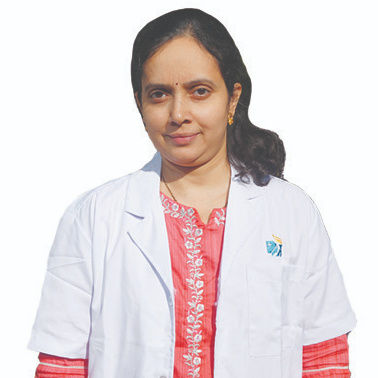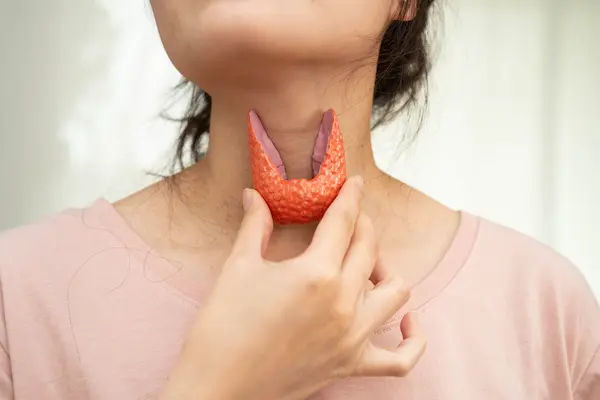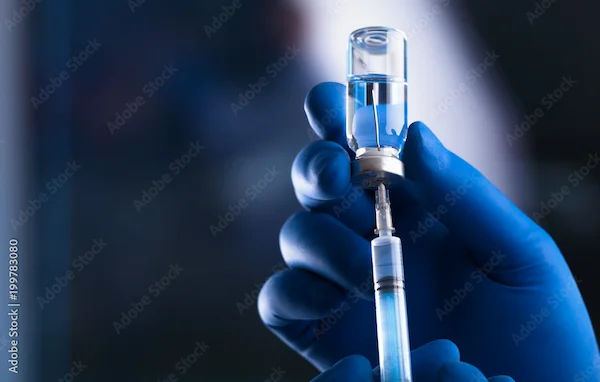Understanding Delayed Puberty in Children: Causes and Care (54 characters)
Learn about delayed puberty in children, its common causes, diagnostic process, and treatment options. Discover how to support your child’s physical and emotional well-being with expert guidance.

Written by Dr. Vasanthasree Nair
Reviewed by Dr. Rohinipriyanka Pondugula MBBS
Last updated on 13th Jan, 2026

Watching your child grow up is a journey filled with milestones, and the onset of puberty is a significant one. But what happens when your child seems to be on a different timeline than their peers? As a parent, it's natural to feel concerned if your son shows no signs of puberty by 14 or your daughter hasn't started her period by 15. This comprehensive guide is designed to demystify the reason puberty is delayed for some children. We will walk you through the common causes, from the benign "late bloomer" pattern to underlying medical conditions, and explain the diagnostic process and potential treatments. Our goal is to equip you with the knowledge to have informed conversations with your child and their doctor, turning anxiety into understanding and proactive care.
The First Signs: Recognising Delayed Puberty in Boys and Girls
Puberty doesn't happen overnight; it's a process that unfolds over several years. While there's a wide range of what's considered normal, doctors have established general guidelines for when puberty should begin. Delayed puberty is formally diagnosed when there are no signs of sexual development by a specific age. Understanding these benchmarks is the first step for any concerned parent.
It's crucial to distinguish between the start of puberty and its completion. This article focuses on the initial signs. A key concept used by pediatricians is the "Tanner stages," a scale that describes the physical development of children during puberty.
Signs of Delayed Puberty in Girls
For girls, the first sign of puberty is typically breast budding (thelarche). The appearance of pubic hair often follows shortly after. A significant milestone is menarche, or the first menstrual period, which usually occurs about 2-3 years after breast development begins.
Key Indicator: Delayed puberty in girls is often considered if there is no breast development by age 13, or if more than 5 years pass between the first signs of breast growth and the first period.
Signs of Delayed Puberty in Boys
In boys, the initial signs are often more subtle. The first observable change is usually an increase in the size of the testicles and scrotum, followed by the lengthening of the penis and the appearance of pubic hair.
Key Indicator: For boys, delayed puberty is typically diagnosed if there is no testicular enlargement by age 14.
Unique Insight: Many parents focus only on height or pubic hair. However, for boys, testicular enlargement is the most critical and earliest sign. If you are unsure, this is a key point to discuss with your pediatrician during a physical exam.
Consult Top Specialists Here
The Most Common Reason: Constitutional Delay of Growth and Puberty (CDGP)
If you're worried that your child is a "late bloomer," you're likely thinking of Constitutional Delay of Growth and Puberty, or CDGP. This is, by far, the most common reason for delayed puberty, accounting for the vast majority of cases, especially in boys. It's not a disease but a variation of normal growth. Children with CDGP are healthy; their puberty timeline is simply shifted later.
These children are often shorter than their peers for their age throughout childhood because their growth spurt is also delayed. However, they continue to grow at a pre-pubertal rate, and once their puberty finally begins, they will experience their growth spurt and usually catch up to their genetic height potential.
The Role of Genetics in CDGP
CDGP often runs in families. A key question a doctor will ask is, "Did either parent (or other close relatives) have a similar pattern?" It's common to hear stories of a father who didn't hit his growth spurt until senior year of high school or a mother who started her periods later than her friends. This familial pattern is a strong indicator of CDGP.
How CDGP is Diagnosed: The "Bone Age" X-Ray
A crucial tool in diagnosing CDGP is a bone age X-ray, typically of the left hand and wrist. This simple, low-radiation test reveals how much growth remains in a child's bones. In CDGP, the "bone age" is almost always significantly younger than the child's chronological age. For example, a 14-year-old boy might have a bone age of 11 or 12, meaning his bones have the growth potential of a younger child, confirming the delay is constitutional.
Underlying Medical Reasons for Delayed Puberty
While CDGP is common, it's essential to rule out other medical conditions that can interrupt the complex hormonal cascade of puberty. These are broadly divided into two categories based on where the problem originates.
Central (Hypogonadotropic) Causes: A Problem with the Signal
This occurs when the pituitary gland in the brain doesn't produce the hormones (LH and FSH) that signal the ovaries or testes to start working. The "command center" is at fault.
Functional Causes: These are often temporary and reversible.
Chronic Illnesses and Nutritional Deficiencies: Conditions like inflammatory bowel disease (Crohn's, ulcerative colitis), cystic fibrosis, poorly controlled diabetes, or chronic kidney disease can divert the body's energy away from growth and reproduction. Similarly, extreme athletic training, eating disorders like anorexia nervosa, or severe nutritional deficiencies can also put puberty on hold.
Anatomic/Hormonal Causes: These involve physical or genetic issues.
Hormonal Disorders and Brain Abnormalities: A deficiency in other pituitary hormones (e.g., growth hormone, thyroid hormone) can delay puberty. Rarely, tumors in the brain (e.g., craniopharyngioma) or genetic conditions like Kallmann syndrome (which also affects the sense of smell) can be the cause.
Gonadal (Hypergonadotropic) Causes: A Problem with the Ovaries or Testes
In this case, the brain sends the signal correctly, but the ovaries or testes (the gonads) are unable to respond. This is often due to genetic conditions or damage to the gonads.
In Girls: Turner Syndrome, a genetic condition where one X chromosome is missing or altered, is a common cause. It affects growth and ovarian function.
In Boys: Klinefelter Syndrome (an extra X chromosome) can cause delayed or incomplete puberty. Damage from chemotherapy, radiation, or trauma can also lead to testicular failure.
Naturally incorporated long-tail keyword: causes of delayed puberty in teenagers.
Getting a Diagnosis: What to Expect at the Doctor's Office
If you suspect delayed puberty, the first step is to consult your pediatrician. They will likely refer you to a pediatric endocrinologist, a specialist in childhood hormonal disorders. The diagnostic process is meticulous and designed to find the root cause.
The Importance of Family and Medical History
The doctor will ask detailed questions about your child's growth pattern, general health, and any symptoms of chronic illness. Crucially, they will take a thorough family history regarding the timing of puberty in parents and siblings.
Key Diagnostic Tests for Delayed Puberty
Physical Exam: To assess Tanner stage, growth pattern, and look for any dysmorphic features.
Bone Age X-Ray: As discussed, to compare skeletal maturity to chronological age.
Blood Tests: These are critical. They will check hormone levels like LH, FSH, testosterone (in boys), estradiol (in girls), thyroid hormone, and others. Apollo24|7 offers convenient home collection for these hormone tests, making the process less stressful for your child.
Further Imaging: If a central cause is suspected, an MRI of the brain may be ordered to look at the pituitary gland.
Based on these results, the doctor can usually determine whether it's CDGP or an underlying medical condition requiring specific treatment.
Treatment Options: When and How to Intervene
Treatment depends entirely on the cause and the psychological impact on the child.
The "Watchful Waiting" Approach for CDGP
For a child with CDGP who is otherwise healthy and not overly distressed, the best course of action is often reassurance and monitoring. The doctor will follow the child every 6-12 months to track growth and the natural onset of puberty.
Hormone Therapy to Jumpstart Puberty
If the delay is causing significant psychological distress (e.g., anxiety, bullying, social withdrawal) or if the delay is profound, doctors may recommend a short, low-dose course of hormones.
For Boys: A few months of testosterone injections can stimulate the development of secondary sexual characteristics. This often provides a psychological boost and can sometimes "kick-start" the body's own production.
For Girls: Low-dose estrogen, given as a pill or patch, can initiate breast development.
It's important to note that this treatment is carefully managed by an endocrinologist. If your child is experiencing significant distress due to delayed development, consulting a specialist through Apollo 24|7 can provide a clear path forward.
Beyond the Physical: Supporting Your Child's Emotional Well-being
The emotional impact of delayed puberty can be profound. Your child may feel isolated, embarrassed, or "different" from their friends. They might be teased or excluded from social activities.
Open Communication: Talk to your child openly and reassuringly. Explain that everyone develops at their own pace and that they are healthy.
Focus on Strengths: Encourage their involvement in activities where size or physical maturity is less important, such as academics, arts, or certain sports like swimming or martial arts.
School Support: Inform school counselors or teachers if needed, so they can provide a supportive environment.
Professional Help: Don't hesitate to seek support from a child psychologist or therapist if your child shows signs of anxiety or depression. Addressing their emotional health is as important as addressing their physical development.
Conclusion
Navigating the journey of delayed puberty with your child can be challenging, but knowledge is your greatest asset. Understanding that the most common reason for this delay in children is a benign, familial pattern like CDGP can provide immense relief. However, it is equally important to pursue a thorough medical evaluation to rule out any underlying conditions. Remember, you are not alone. By partnering with your paediatrician or a pediatric endocrinologist, you can ensure your child receives the appropriate care, whether that involves simple reassurance or a carefully managed treatment plan. The ultimate goal is to support your child's healthy development—both physical and emotional—and guide them confidently into adulthood. If you have concerns about your child's development, don't wait to seek professional advice. You can consult with a specialist online through Apollo 24|7 to discuss the next steps.
Consult Top Specialists Here
Consult Top Specialists Here

Dr. Shirish Kankariya
Paediatrician
21 Years • MBBS, DNB Paediatrics, Diploma in Child Health
Pune
Apollo Hospitals Pune, Pune

Dr. Barnali Das. Senior Child Specialist
Paediatrician
24 Years • MBBS, DCH, PGT (SGRH, New Delhi),MRCPCH (United Kingdom)
Guwahati
Apollo Hospitals G S Road, Guwahati
(50+ Patients)
Dr. Vishal Kole
Paediatrician
6 Years • MBBS, DCH(Paediatrics), DNB(Paediatrics), MRCPCH, Fellowship in Neonatology, Diploma in UKMP
Pune
Apollo Hospitals Pune, Pune

Dr. Geetanjali Sahariah Khound
Paediatrician
19 Years • MBBS,DCH
Guwahati
Apollo Hospitals G S Road, Guwahati
(50+ Patients)

Dr. Anjana Hulse
Paediatric Endocrinologist
20 Years • MBBS, MRCPCH, MSc
Bengaluru
Apollo Hospitals Bannerghatta Road, Bengaluru




